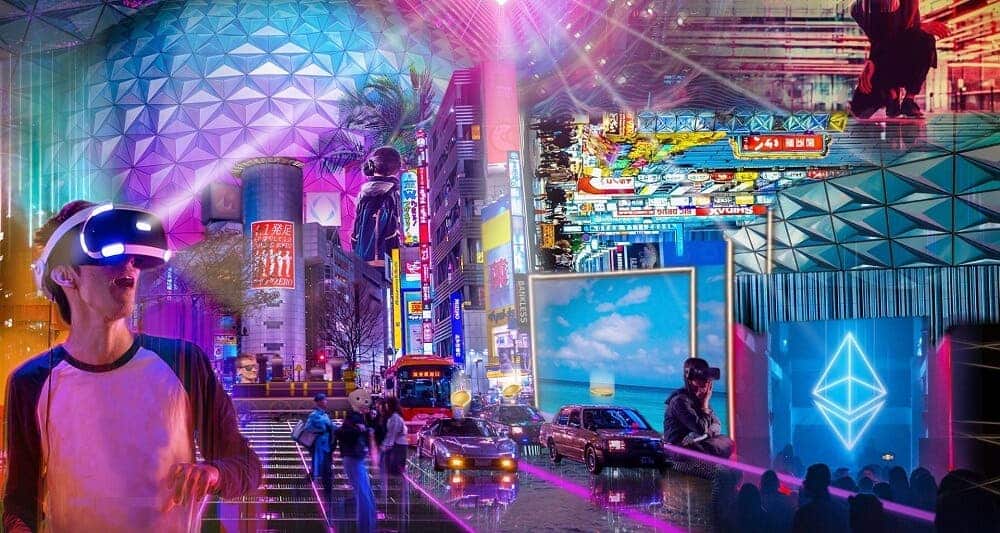Executives at Meta maintain a great faith in the potential of the Metaverse despite large losses within its devoted division. Chris Cox, the social network’s chief product officer, is certain that the Metaverse will surpass smartphones in importance in the coming years.
It must be acknowledged that the Metaverse is failing to seduce the general public given that more and more businesses from around the world are launching there. Meta, the hub of the Metaverse, has been suffering huge losses as evidence of this.
We discovered in April 2022 that Meta had lost no less than $3 billion. As a result of its significant expenditures in Reality Labs, a part of the Metaverse. Also, take note that just the first quarter of 2022 was affected by these losses. The deficit is more than $10 billion in a single year.
The Metaverse will be as popular as smartphones

But never mind. Meta, that still has complete faith in the rise of the Metaverse, is unconcerned by these setbacks. The social network’s chief product officer, Chris Cox, predicted that “the metaverse would one day become as crucial as smartphones” during a panel discussion at the Davos Economic Forum.
The executive attempted to explain why the metaverse was having such a difficult time capturing the attention of the general public during this symposium devoted just to this virtual world. He claims that the metaverse’s major issue is still its incompatibility with other platforms.
Because of how consistently its various components relate to one another, I believe the internet is a pretty appropriate metaphor for the Metaverse. The manager specifically brings up how simple it is for people to switch between websites or applications on the Internet. something that the metaverse does not yet permit.
Meta’s Metaverse

In any case, this is not truly the case for the company’s driving forces if Meta’s intellectual leadership continues to have a complete faith in the Metaverse. In fact, we discovered in October 2022 that many employees detested using Meta’s virtual reality program, Horizon Worlds due to several bug issues.
A few weeks later, everyone was surprised when Meta announced the layoff of more than 11,000 employees and the implementation of a significant austerity plan. However, Mark Zuckerberg has stated that the amount spent on Reality Labs projects will increase in 2023.
The metaverse: Where are we going?

The Metaverse is a term used to describe a virtual world that is fully immersive and interactive, where users can interact with each other and with digital objects in real-time. It is often described as a combination of virtual reality, augmented reality, and the internet, creating a seamless blend of the physical and digital worlds.
The concept of the Metaverse has been around for decades, but it has recently gained renewed interest and attention due to advancements in technology. With the rapid development of virtual reality, augmented reality, and 5G networks, the potential for a fully-realized Metaverse is becoming increasingly possible.
One of the key components of the Metaverse is its ability to provide a sense of presence, or the feeling of being in a different place. This is achieved through the use of virtual reality and augmented reality technology, which can create highly realistic and immersive environments. The Metaverse also allows for real-time interactions between users, enabling them to communicate and collaborate in a shared digital space.
The Metaverse also has the potential to revolutionize the way we work, learn, and play. In the professional world, the Metaverse could allow for remote teams to collaborate in a virtual office. Enabling them to work together as if they were in the same physical space. In education, the Metaverse could provide students with access to immersive and interactive learning experiences. Making education more engaging and effective. Also, in the entertainment industry, the Metaverse could provide users with new and exciting ways. To experience games, movies, and other forms of media.
The development of the Metaverse also raises important questions about privacy, security, and ownership. As the Metaverse becomes increasingly integrated into our lives. It will be crucial to establish clear and fair rules for data protection and privacy. To ensure that users have control over their personal information and digital assets. Additionally, there are questions about who will own and control the Metaverse, and how it will be governed.
The Metaverse has the potential to be a transformative technology that will change the way we interact with the world and with each other. It is an exciting development that has the potential to revolutionize the way we work, learn, and play. However, it is important to consider the potential challenges and implications of the Metaverse. And to work towards solutions that will ensure the protection of users’ rights and privacy.
The concept of a metaverse, or a virtual shared space where users can interact with each other and digital objects in a seamless and immersive way, has been gaining a lot of attention in recent years. Many experts believe that the development of technologies such as virtual and augmented reality. As well as advances in networking and computing power. Which will make the creation of a virtual world possible in the near future. However, there are still many technical, social, and economic challenges that need to be overcome before a truly inclusive and decentralized metaverse can be realized. Additionally, it’s important to consider the potential implications of the metaverse on society and privacy. Such as increasing the gap in digital divide. Overall, it is an exciting and complex area of research and development with many possibilities.
The potential benefits of the Metaverse

The potential benefits of the Metaverse are vast and varied. And the technology has the potential to revolutionize the way we interact with the world and with each other. However, it is important to consider the potential challenges and implications of the Metaverse. And to work towards solutions that will ensure the protection of users’ rights and privacy.
Some of the potential benefits of the Metaverse include:
- Greater connectivity and collaboration: The Metaverse could enable users to connect and collaborate with others in a shared digital space. Regardless of their physical location.
- Improved education and training: The Metaverse could provide students and professionals with access to immersive and interactive learning experiences. Making education more engaging and effective.
- Enhanced entertainment experiences: The Metaverse could provide users with new and exciting ways. To experience games, movies, and other forms of media.
However, the Metaverse also raises important questions about privacy, security, and ownership. As the Metaverse becomes increasingly integrated into our lives. It will be crucial to establish clear and fair rules for data protection and privacy. To ensure that users have control over their personal information and digital assets. Additionally, there are questions about who will own and control the Metaverse, and how it will be governed.
Whether the Metaverse is worth it or not, will depend on how well it addresses these challenges. And the extent to which it can deliver on its potential benefits.
The issues of the Metaverse

The development of the Metaverse is an exciting and potentially transformative technology. But it also presents a number of challenges and flaws that must be addressed.
- Privacy and security concerns: As the Metaverse becomes more integrated into our lives. There are concerns about how personal data and digital assets will be protected. This includes concerns about data breaches, hacking, and the potential for misuse of personal information.
- Digital divide: There is a risk that this virtual world will exacerbate existing inequalities. As access to the technology and the resources required. To fully participate in the virtual world will be limited to certain individuals and groups. This could create a digital divide that leaves some people behind.
- Addiction and disconnection: The immersive and engaging nature of the Metaverse could lead to addiction. As users spend more and more time in virtual worlds, potentially at the expense of their physical and social lives.
- Ethical issues: The Metaverse raises a number of ethical issues. Such as the rights and responsibilities of users in virtual environments. In addition to the impact of virtual worlds on human behavior and the regulation of virtual economies.
- Technical challenges: The development of this virtual world is still in its early stages. And there are significant technical challenges that must get a fix in order to make the Metaverse a reality. These include issues related to data storage and processing, network infrastructure, and the development of new hardware and software.
- Legal and governance issues. There are many legal and governance issues that will need get a fix as the Metaverse evolves. Including issues related to intellectual property, liability, and regulation.
In conclusion, the development of this virtual world presents a number of challenges and flaws that must be addressed. In order to ensure that the technology is in use in a responsible and ethical manner. These include privacy and security concerns, the digital divide, addiction and disconnection, ethical issues, technical challenges, and legal and governance issues.





